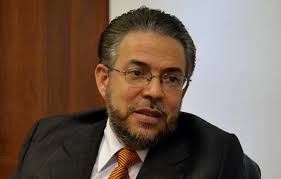
In an op-ed feature in Diario Libre, former presidential candidate Guillermo Moreno of Alianza Pais analyzes the legal perks and benefits that to this day have come with the position of deputy or senator in the Dominican Congress. Among these is the “barrilito” or the treasure trove that critics describe as a slush fund used for political patronage purposes.
Take note there are 32 senators and 190 deputies.
The first Alianza Pais deputy, Fidelio Despradel when elected in 2016, announced he would not accept this perk early on. Now the newly elected deputies for the party, Jose Horacio Rodriguez (AlPais-National District and Pedro Martinez (AlPais – National Deputy), have said they will not either partake in the fund and are campaigning to have it outlawed completely. The 2020-2024 Congress will be mostly made up of new legislators, with the control of both chambers now passing to the parties that have been opposition to the ruling Dominican Liberation Party (PLD).
The slush fund was legalized in 2006 by still president of the Senate, Reinaldo Pared Perez (PLD-National District). Pared Perez is on leave of absence for health reasons.
The main focus of the debate is on the Social Assistance Fund (legal slush fund). It distributes taxpayer revenues this way:
RD$400,000 a month, plus an additional RD$1.00 per voter in their jurisdiction. The senator that least receives represents Pedernales and receives RD$420,000 a month. The senator for the National District receives RD$900,000 a month from the fund. The senators and deputies are not held accountable for their use of this cash.
In his Diario Libre commentary, Guillermo Moreno argues that the fund contradicts the essence of the role of the legislators. He stresses legislators are elected to draft bills and control government on behalf of the Dominican people. He stresses that nowhere in the Constitution is there a mention of a “social assistance role” for legislators.
Deputies also get paid:
RD$175,00 monthly base salary
RD$35,000 representation expenses
RD$45,000 per diem, and for work sessions attended
Two unlimited vehicle tax exemptions. It is a common practice to sell these to a dealer, who can use these to import a Porsche, for instance.
Senators get paid:
RD$320,000 monthly base salary
RD$50,000 representation expenses
RD$25,000 travel allowance
RD$25,000 per diem
RD$3,500 per session attended
RD$2,500 per committee meeting attended
Two unlimited vehicle tax exemptions.
Read more in Spanish:
Diario Libre
DR1 Forums
22 July 2020

